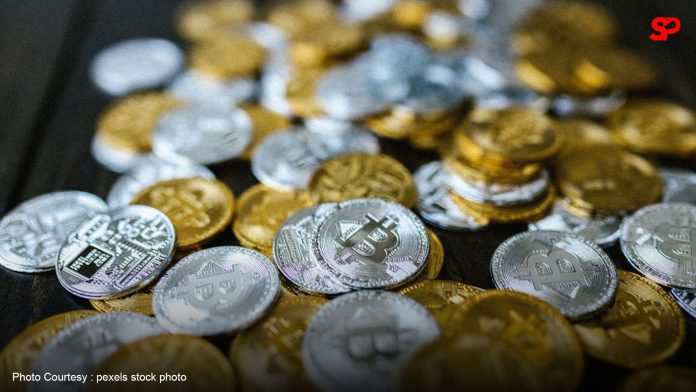By Jose Guillermo – Sunday Punch
Navigating the cryptocurrency world requires familiarity with key terms.
Bitcoin (BTC) is the pioneering digital currency.
Altcoins refer to all cryptocurrencies other than Bitcoin.
Blockchain is the decentralized ledger that records all transactions.
Wallets are digital tools to store cryptocurrencies, while private keys are crucial for access. Mining involves validating transactions to earn coins, whereas staking involves holding coins to support network operations and earn rewards.
Smart contracts are self-executing agreements coded on blockchains.
DeFi (Decentralized Finance) aims to recreate traditional financial systems using blockchain. Understanding these terms can help demystify the crypto space and guide your investment decisions.
Navigating the cryptocurrency world requires familiarity with essential terms. Let me share some of the more important ones:
- AirDrop: is a free giveaway of cryptocurrency tokens
- Altcoins: Cryptocurrencies other than Bitcoin, each with unique properties.
- All-time High / All-time Low: The highest or lowest price ever reached by an asset.
- Bull Market: A market trend where prices are rising and sentiment is positive.
- Bear Market: A market trend characterized by falling prices and negative sentiment.
- Blockchain: A decentralized ledger of transactions, distributed across a network.
- Block: A collection of transactions added to the blockchain, linked cryptographically to the previous block.
- Block Reward: New cryptocurrency issued to miners or validators for creating blocks.
- Consensus: The method by which network participants agree on blockchain data. Prominent types are proof-of-work (PoW) and proof-of-stake (PoS).
- Cryptography: The science of securing information, essential for blockchain and cryptocurrency security.
- dApp: Decentralized applications that run on blockchains and use smart contracts.
- DAO: Decentralized Autonomous Organization, governed by smart contracts and community voting.
- DeFi: Decentralized Finance, using blockchain to offer financial services without intermediaries.
- DYOR: Do Your Own Research, emphasizing the importance of personal investigation before investing.
- ERC-20: A standard for creating tokens on the Ethereum network.
- ERC-721: A standard for creating non-fungible tokens (NFTs) on Ethereum.
- EVM: Ethereum Virtual Machine, a runtime environment for executing smart contracts.
- Fiat: Traditional currencies like the US dollar or euro.
- Fork: A protocol change that creates two versions of a blockchain. Hard forks result in a new currency, while soft forks update the existing protocol.
- FOMO: Fear of Missing Out, the anxiety of missing out on profitable opportunities.
- FUD: Fear, Uncertainty, and Doubt, often spread to create negative sentiment.
- Fundamental Analysis: Evaluating an asset’s value and potential based on its technology, team, and use cases.
- Gas: Fees for performing operations on the Ethereum network.
- Gwei: A denomination of Ether used to measure gas fees.
- Halving: A reduction in Bitcoin’s block reward by 50%, occurring approximately every four years.
- Hash Rate: The computational power used to mine and process transactions.
- HODL: A misspelling of “hold,” meaning to retain cryptocurrencies despite market fluctuations.
- KYC: Know Your Customer, the process of verifying customer identities.
- Ledger: The record of transactions for a cryptocurrency, maintained on the blockchain.
- Liquidity: The ease of buying or selling an asset without affecting its price.
- Limit Order: An order to buy or sell an asset at a specific price or better.
- Margin Trading: Using borrowed funds to trade larger amounts, increasing potential profits and risks.
- Market Cap: The total value of a cryptocurrency, calculated by multiplying its price by its circulating supply.
- Mining: The process of validating transactions and creating new blocks in a blockchain.
- Mining Pool: A group of miners who combine their resources to increase their chances of earning rewards.
- NFT: Non-fungible Token, a unique digital asset representing ownership of a distinct item or collectible.
- Network Fees: Fees required to process transactions on a blockchain network.
- Node: A participant in the blockchain network that stores data and helps validate transactions.
- Nonce: A random number used in proof-of-work mining to solve cryptographic puzzles.
- Paper Wallet: A physical document containing cryptocurrency private keys, used for secure, offline storage.
- Private Key: A secret key used to access and manage cryptocurrency holdings.
- Proof-of-Stake (PoS): A consensus mechanism where participants validate transactions based on their stake in the network.
- Proof-of-Work (PoW): A consensus mechanism where miners solve puzzles to validate transactions and earn rewards.
- Public Key: A key that is paired with a private key, used to receive cryptocurrency.
- Sats (Satoshis): The smallest unit of Bitcoin, named after its creator, equal to 0.00000001 BTC.
- SegWit: Segregated Witness, an update to Bitcoin that increased transaction capacity by removing signature data.
- SHA-256: A cryptographic hashing algorithm used in Bitcoin’s proof-of-work system.
- Smart Contracts: Self-executing contracts with terms directly written into code on a blockchain.
- Solidity: A programming language for writing smart contracts on the Ethereum network.
- TA (Technical Analysis): The study of price charts and indicators to forecast market trends.
- Testnet: A testing environment for blockchain development, where transactions use valueless test tokens.
- Token: A digital asset created and managed via smart contracts on a blockchain.
- UTXO: Unspent Transaction Outputs, units of cryptocurrency that remain after a transaction.
- Validators: Participants in a proof-of-stake network who verify and validate transactions.
- Volatility: The degree of variation in an asset’s price, a common trait in cryptocurrencies.
- Wallet: A digital tool for managing private keys and making cryptocurrency transactions.
- Whale: An entity or individual with significant holdings in the cryptocurrency market.
- White Paper: A document outlining a cryptocurrency project’s technology, purpose, and implementation strategy.
Cryptocurrency is a volatile market, characterized by significant fluctuations in coin values. Prices can spike dramatically or drop just as quickly.
Therefore, it’s crucial to Do Your Own Research (DYOR) before investing in any coin. Performing thorough due diligence is essential to navigate this uncertain landscape successfully.

